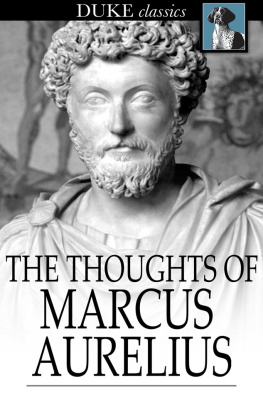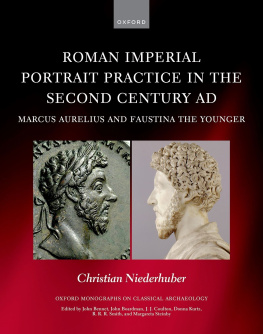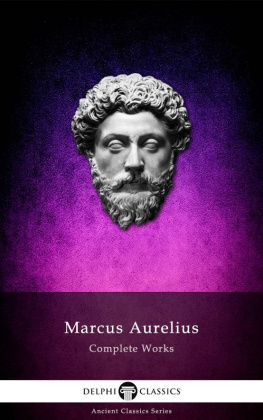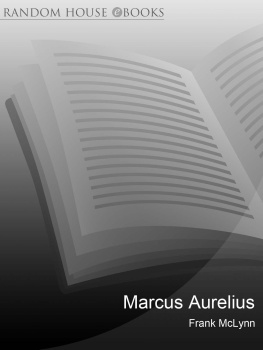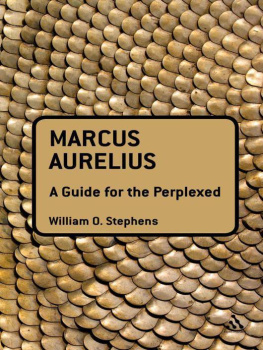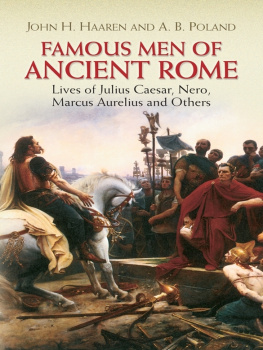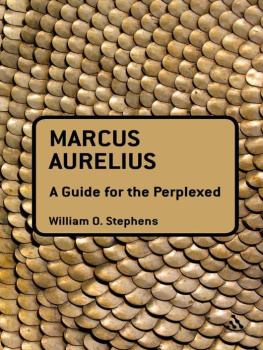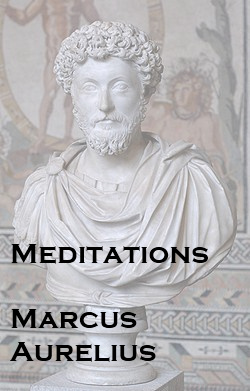THE ARISTOCRACY UNDER THE TERROR
The period of social history which we are about to study isprofoundly interesting in many ways, but not least in themany contrasts between its opening and its close. It openswith the tyranny of one of the worst men who ever occupieda throne; it ends with the mild rule of a Stoic saint. Itbegins in massacre and the carnage of civil strife; it closesin the apparent triumph of the philosophic ideal, althoughbefore the end of the reign of the philosophers the shadowshave begun to fall. The contrast of character between the twoprinces is generally supposed to find a correspondence in themoral character and ideals of the men over whom they ruled.The accession of Vespasian which, after a deadly struggle, seemedto bring the orgies of a brutal despotism to a close, is regardedas marking not only a political, but a moral, revolution. It wasthe dawn of an age of repentance and amendment, of beneficentadministration, of a great moral revival. We are bound toaccept the express testimony of a contemporary likeTacitus, The better sort, representedby the circles of Persius, of Pliny and Tacitus, who hadnursed the ideal of Stoic or old Roman virtue in some retreaton the northern lakes or in the folds of the Apennines, emergedfrom seclusion and came to the front in the reign of Trajan.
Yet neither the language of Tacitus nor the testimony fromother sources justify the belief in any sudden moral revolution.The Antonine age was undoubtedly an age of conscientiousand humane government in the interest of the subject; it waseven more an age of religious revival. But whether thesewere accompanied by a corresponding elevation of conduct andmoral tone among the masses may well be doubted. On theother hand the pessimism of satirist and historian who hadlived through the darkness of the Terror has probablyexaggerated the corruption of the evil days. If society atlarge had been half as corrupt as it is represented by Juvenal,it would have speedily perished from mere rottenness. TheInscriptions, the Letters of the younger Pliny, even the pagesof Tacitus himself, reveal to us another world from that ofthe satirist. On countless tombs we have the record orthe ideal of a family life of sober, honest industry, and pureaffection. In the calm of rural retreats in Lombardy orTuscany, while the capital was frenzied with vicious indulgence,or seething with conspiracy and desolated by massacre,there were many families living in almost puritan quietude,where the moral standard was in many respects as high asamong ourselves. The worst period of the Roman Empire wasthe most glorious age of practical Stoicism. The men of thatcircle were ready, at the cost of liberty or life, to brave animmoral tyranny; their wives were eager to follow them intoexile, or to die by their side. The moral and mentalequality of the sexes was being more and more recognised intheory, as the capacity of women for heroic action and self-sacrificewas displayed so often in the age of the tyranny andof the Stoic martyrs. The old cruelty and contempt for theslave will not give way for many a generation; but the slave isnow treated by all the great leaders of moral reform as a beingof the same mould as his master, his equal, if not his superior,in capacity for virtue.
The peculiar distinction of the Antonine age is not to besought in any great difference from the age preceding it in conductor moral ideals among the great mass of men. Nor canit claim any literary distinction of decided originality, exceptin the possession of the airy grace and half-serious mockeryof Lucian. Juvenal, Tacitus, and the younger Pliny, Suetoniusand Quintilian, Plutarch and Dion Chrysostom, were probably alldead before Antoninus Pius came to the throne. After Hadriansreign pure Roman literature, in any worthy sense, is extinct;it dies away in that Sahara of the higher intellect whichstretches forward to the Fall of the Empire. There is no great [pg 4] historian after Tacitus; there is no considerable poet afterStatius and Juvenal, till the meteor-like apparition of Claudianin the ominous reign of Honorius.
The material splendour and municipal life of the Antonineage are externally its greatest glory. It was pre-eminently asociable age, an age of cities. From the wall of Hadrian tothe edge of the Sahara towns sprang up everywhere with asyet a free civic life. It was an age of engineers and architects,who turned villages into cities and built cities in the desert,adorned with temples and stately arches and basilicas, andfeeding their fountains from the springs of distant hills. Therich were powerful and popular; and never had they to payso heavily for popularity and power. The cost of civic feastsand games, of forums and temples and theatres, was won byflattery, or extorted by an inexorable force of public opinionfrom their coffers. The poor were feasted and amused by theirsocial superiors who received a deference and adulation expressedon hundreds of inscriptions. And it must be confessedthat these records of ambitious munificence and expectantgratitude do not raise our conception of either the economicor the moral condition of the age.
The glory of classic art had almost vanished; and yet,without being able to produce any works of creative genius,the inexhaustible vitality of the Hellenic spirit once moreasserted itself. After a long eclipse, the rhetorical culture ofGreece vigorously addressed itself in the reign of Hadrian tothe conquest of the West. Her teachers and spiritual directorsindeed had long been in every family of note. Her sophistswere now seen haranguing crowds in every town from the Donto the Atlantic. The influence of the sophistic discipline ineducation will be felt in the schools of Gaul, when Visigothand Burgundian will be preparing to assume the heritage ofthe falling Empire. sought a convergingspiritual support in the gods and mysteries of every clime.
Platonist philosophy strove to give rational expression tothis movement, to reconcile cultivated moral sense with theworships of the past, to find a bond between the vagrant religiousfancies of the crowd and the remote esoteric faith of thephilosophic few. On the higher minds, from whatever quarter,a spiritual vision had opened, which was strange to the ancientworld, the vision of One who is no longer a mere Force, butan infinite Father, Creator, Providence and Guardian, fromwhom we come, to whom we go at death. Prayer to Him is acommunion, not the means of winning mere temporal blessings;He is not gratified by bloody sacrifice; He is dishonoured byimmoral legend.by the most cunning hand, although the idealised human formmay be used as a secondary aid to devotion. These were someof the religious ideas current among the best men, Dion Chrysostom,Plutarch, Maximus of Tyre, which the Neo-Platonicschool strove to harmonise with the rites and legends of thepast. The means by which they tried to do so, and the measureof their success, it is one purpose of this book to explain.
The Antonine age saw for a brief space the dream of Platorealised, when kings should be philosophers, and philosophersshould be kings. Philosophy had given up its detached andhaughty reserve, or outspoken opposition to imperial power.In the second century it lent all its forces to an authoritywhich in the hands of the Antonine princes seemed to answerto its ideals.laborious earthly providence had been realised since the accessionof Trajan. It was easier to be virtuous in the reignof M. Aurelius than in the reign of Nero, and it was especiallyeasier for a man of the highest social grade. Theexample of the prince for good or evil must always powerfullyinfluence the class who are by birth or office nearest to thethrone. And bad example will be infinitely more corruptingwhen it is reinforced by terror. A fierce, capricious tyrannygenerates a class of vices which are perhaps more degradingto human dignity, and socially more dangerous, than thevices of the flesh. And the reign of such men as Caligula,Nero, and Domitian not only stimulated the grossness of self-indulgence,but superadded the treachery and servility ofcowardice. In order to appreciate fully what the world hadgained by the mild and temperate rule of the princes of thesecond century, it is necessary to revive for a moment theterrors of the Claudian Caesars.



